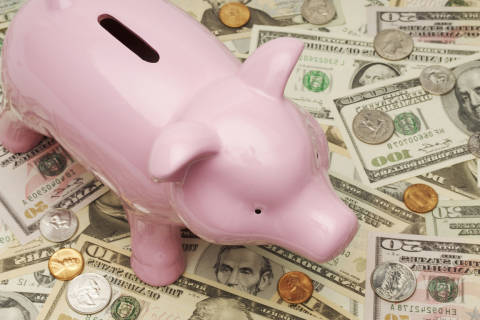Credit card churners take earning rewards to the next level. While a novice might be tempted to sign up for a new card just to snag some extra airline miles or a new tote bag, credit card churners strategically apply for cards that offer top-tier rewards and then maximize their benefits.
While the rewards are potentially huge — the points you earn could let you travel the world for free — credit card churning carries a high risk. Here’s a primer on how it’s done.
What Is credit card churning?
Credit card churning is essentially applying for credit cards solely to earn rewards. Churners will make enough purchases with their card to meet the requirement to get a large sign-up bonus and then will stop using the card.
Generally, the travel rewards credit cards are most appealing as you can get a great value redeeming points and miles for free travel. But sometimes, churners will open new credit cards for the cash-back offers.
[Read: The Best Travel Rewards Credit Cards of 2017.]
And some people have multiple cards churning at a time. “You can apply for multiple credit cards in short periods to get multiple sign-up bonuses,” says Richard Kerr, a credit card enthusiast who frequently shares tips on maximizing credit card rewards, and founder of Award Travel 101, a “Facebook community dedicated to all things points and miles.”
If the card has an annual fee, you could close the card before the fee is due. Alternatively, you could call the card issuer and ask to “product change,” which lets you switch to a different credit card but keep your account open, which may be better for your credit score.
With some credit cards, you can get the sign-up bonuses multiple times. This is possible by getting two of the same cards, or by canceling your first account and then applying for the card again.
What are the benefits of credit card churning?
Generally, credit card churners are looking for ways to travel for free using points and miles.
“Since I own my own business, I was able to leverage credit card bonuses and spending in order to propose to my fiancee in Maui, Hawaii,” says Jason Veirs, experienced credit card churner and president of Insurance Experts Solutions, Inc. “We were able to book our flights and hotel on points, and the travel expenses for our seven-day trip only ended up costing around $500 between resort fees and a rental car.”
Although the rewards you can earn on everyday purchases add up, especially for business owners, churners tend to focus on getting a lot of sign-up bonuses by applying for new cards and meeting the requirements.
[Read: Everything You Need to Know About Credit Scores.]
For example, you might see an offer to get 50,000 points if you spend $4,000 within the first three months of opening the card account. That’s 12.5 points per dollar, when most cards offer at most five points per dollar on select bonus categories, and that’s on top of the points or miles you earn from your purchases while you’re trying to meet the initial minimum purchase requirement.
You may wind up having several different rewards cards, so you’ll also be able to maximize the rewards you get with every credit card purchase you make. Plus, the cards often offer complimentary perks. For example, a cobranded airline credit card may let you and your traveling companions check your bags for free.
“Credit cards have really enriched our travel experiences, while letting us take in the many nuances of a particular travel destination,” says Veirs. By saving on travel costs, he was able to spend money on excursions and restaurants without going over budget.
Are there dangers to credit card churning?
Credit card churning can be a fun and profitable hobby, but without a doubt, it isn’t for everyone. Here are the primary dangers:
You risk overspending. “People tell me they went out and bought new appliances a few years early or made other large purchases to get sign-up bonuses,” says Kerr. “They’re missing the whole point.”
When you apply for a new credit card because of a sign-up bonus, be sure that you can complete the purchase requirement without spending more money than you would have otherwise.
Kerr says, “Don’t give yourself a reason to spend money that you’re not going to spend anyway.” He adds that it’s important to always pay your bill in full each month to avoid interest charges.
Veirs echoes this advice, saying, “You need to treat the credit card like you would cash, and budget accordingly. Just because you have the piece of plastic with a $30,000 credit line, doesn’t mean that you should abuse it.” While he enjoys maximizing credit card bonuses, Veirs also makes sure he can pay off his balance in full every month.
It could hurt your credit. Opening a new credit card can affect your credit score in several ways. Applying for a card generally results in a hard inquiry, which may lead to a minor and temporary drop in your credit score, according to myFICO. Multiple hard inquiries, or a hard inquiry if you don’t have an established credit history, can lead to bigger drops. That could cause difficulties if you’re trying to get a mortgage or other type of loan.
A new card will also lower the average age of your accounts, which can hurt your score. But, it will also give you more overall available credit. As long as you keep your spending the same, this will lead to a lower utilization rate, which can help your score.
The most harmful effects could come from maxing out your cards, making late payments, or defaulting on the debt and having your account sent to collections.
On the other hand, if you keep your balances low and always pay your bill on time, new cards could actually improve your credit.
[Read: The Best Cash Back Credit Cards of 2017.]
You may pay more in fees and interest than you earn in rewards. Handling multiple credit card accounts, each with their own credit limits, program rules, fees and due dates can be difficult.
Kerr shared how one of his community members reached out to him after accidentally double-paying the bill on one card, and missed a payment on the other. “He had to pay a late fee and interest charges,” says Kerr.
In addition to keeping track of balances and bill due dates, you’ll want to track when you opened new accounts, your progress toward meeting sign-up bonuses and when you’ll have to pay annual fees. Failing to stay organized can lead to paying interest and fees, or missing out on the sign-up bonus that got you to apply for a card in the first place.
Some churners use personal finance or budgeting apps, such as Mint or Personal Capital, to keep track of their accounts, due dates and balances. You can also use AwardWallet to help you track your points and miles balances in different loyalty programs, and alert you if your points or miles are due to expire.
Best practices and tips
Set a goal and start small. “This hobby is a marathon, not a sprint,” says Kerr. “Slow and steady wins the race.” You can start with two or three cards and a plan for meeting the minimum purchase requirement without overspending.
If you have a history of consumer credit card debt, starting with just one card to see if you can control your expenses might be a better option.
Read the fine print and know the rules. As credit card churning has become more popular, the credit card issuers have been enacting policies that can make it more difficult to earn rewards.
For example, you may not be able to meet an initial purchase requirement by buying prepaid cards, gift cards or traveler’s checks, or by making a balance transfer or cash advances. And, some card issuers may even take back your bonus if you close or downgrade your account within 12 months of opening it.
Where to Learn More
The world of credit card churning can be fun for some, and overwhelming to others. It also seems to be growing in popularity, and there are blogs and communities that you can follow and join to help make sense of everything.
Kerr’s Award Travel 101 Facebook group is one such community. He’s also a writer for The Points Guy, one of the most well-known blogs about travel rewards. The Frequent Miler, Miles to Memories and Doctor of Credit are three additional blogs that can teach you the ropes of churning and keep you up-to-date on the latest deals and other important information.
More from U.S. News
Best Rewards Credit Cards of 2017
5 Things to Know About Credit Cards
Best Credit Card Sign-up Bonus Offers of 2017
What Is Credit Card Churning? originally appeared on usnews.com







